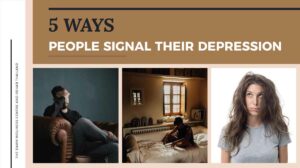
Understanding the Risks of Double Depression
There are many different types of depressive disorders, but double depression involves experiencing an overlap of two serious forms of this condition. Knowing the symptoms and when to seek help
Depression is more than just feeling sad or experiencing temporary low moods. These articles provide comprehensive insights into clinical depression, its various manifestations, and evidence-based approaches to treatment and recovery.
Our licensed clinicians, who are mental health experts, examine depression through multiple lenses, offering valuable perspectives on this complex mental health condition that affects millions worldwide. From major depressive disorder to seasonal affective disorder, we explore the full spectrum of depressive conditions with empathy and clinical expertise.
Through carefully researched content, we address essential topics including:Signs and symptoms of different types of depression
Our articles combine scientific understanding with practical guidance, acknowledging that each person’s experience with depression is unique. We explore various therapeutic approaches, from traditional psychotherapy to innovative treatments, helping readers understand their options for recovery.
We place special emphasis on holistic approaches to managing depression, including the importance of sleep, nutrition, exercise, and social connections. Our content provides actionable strategies for building resilience and maintaining mental wellness whilst navigating depression.
Understanding that depression often impacts relationships and family dynamics, we offer guidance for both those experiencing depression and their support networks. From communication strategies to self-care tips for caregivers, our resources help foster understanding and effective support systems.
Depression also affects people in different stages of life. We provide targeted insights for various demographics, from youth experiencing depression to older adults facing unique challenges. Our resources include strategies and guidance on building effective support systems at any age.
Understanding treatment options is crucial for recovery. We talk about various therapies and innovative treatment approaches, such as TMS Treatment. Our content helps readers make informed decisions about their treatment journey.
Browse our blogs to explore paths to recovery and well-being. Through greater understanding and access to quality information, we can work together to break down barriers to treatment and create hope for those affected by depression.
Remember: Depression is treatable, and help is available. This content is for informational purposes only and should not substitute for professional medical advice.

There are many different types of depressive disorders, but double depression involves experiencing an overlap of two serious forms of this condition. Knowing the symptoms and when to seek help

Are you struggling to manage stress? Do you often find your interpersonal relationships to be challenging? Do you feel like there’s a disconnect between how you feel and how you

You’re concerned that you may be battling depression, but where did it come from? Could a close family member with this condition put you at increased risk for inheriting depression

You’ve noticed that in the last few years, you haven’t quite felt like yourself. You are irritable, sad, and feel flat about things that used to make you excited. Knowing

You’ve brushed aside the chronic low mood, exhaustion and lack of motivation for months, maybe even years. Underestimating the long-term impacts of dysthymia however, could have serious effects on your

Depression can feel like a psychological vacuum, sucking up your energy, motivation, and excitement for what the day holds. This ‘Depression Motivation Guide’ shows you how to create a space

Depression can be hard to put into words, but when you are a parent with depression, it’s important to be able to explain what’s going on to your children. Preparing

Think depression is an obvious disorder? Think again. There are many reasons why people will try to cover up their depression, and you may know someone who is hiding a

The pandemic has spurred an increase in mental health disorders like depression, as well as the use of antidepressant medications to treat them. Understanding the complexities of these drugs is

Despite a rising awareness of the prevalence of depression in the Middle East, significant social stigma regarding mental health issues remains. A better understanding of depression, and recognising the effectiveness

The onset of depression can spur a variety of reactions in the person feeling it, with some reaching out for comfort and support, and others withdrawing into their own personal

It can be heartbreaking to watch someone you love struggle with depression. While you may want to try anything you can to help, a measured, informed approach to support is

The simple answer is RIGHT NOW. Why? Because an addiction only worsens with time; so committing yourself to getting help now is critical to preserving your health, your relationships, and your financial wellbeing. For most of us, few days pass that aren’t completely filled to the brim. We are constantly

Narcissism and drug addiction often go hand-in-hand since individuals with narcissistic personalities need to find a way to escape their overwhelming emotional anxiety and pain. Similarly, most addicts have narcissistic traits. An addicted narcissist may have unique challenges in getting treatment, such as feelings of entitlement in addiction recovery, and so

Mark uses cocaine every weekend with his friends. He has a high-pressure job as an investment banker. He works hard. He plays hard. And if you ask him if he has a cocaine addiction, his response would be “Don’t I deserve to relax with my friends after a hard week

An unsolicited treatment review by one of our clients – anxiety sufferer Kirsty spent 21 long years in and out of therapy before finally finding treatment that worked for her. “I’ve been in and out of counselling, group therapy, psychiatric wards and rehabilitation my whole adult life – but somehow